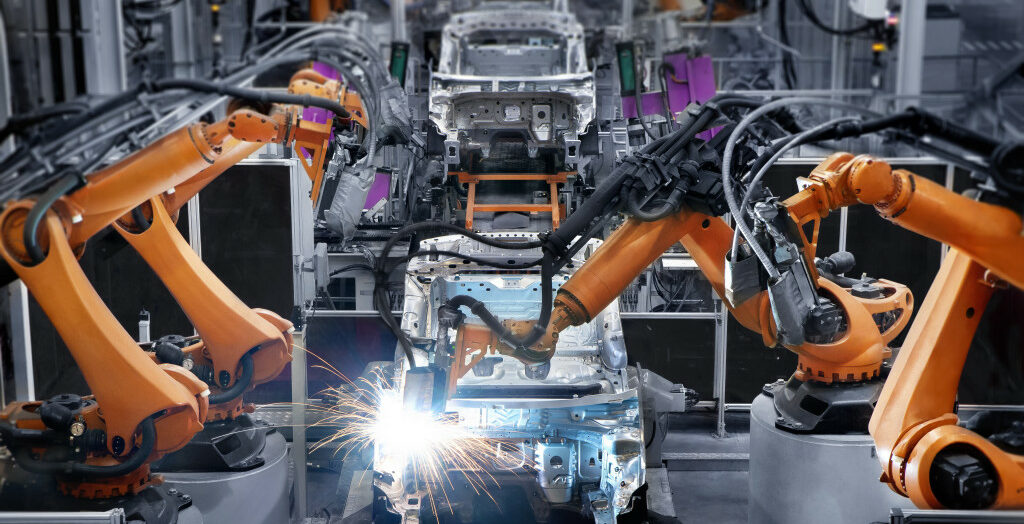- Technological advancements like automation, additive manufacturing, digital twins, smart factories, advanced materials, and AI are revolutionizing the manufacturing industry.
- These technologies increase efficiency, precision, and productivity, but their adoption requires significant investments and skilled personnel.
- Smart factories use interconnected technologies to optimize real-time processes, improve decision-making, and increase competitiveness.
- Advanced materials offer vast potential and strategic advantage for manufacturers, despite challenges with cost and scalability.
You’re on the cusp of a revolution. Welcome to the realm of modern manufacturing, where technological breakthroughs are driving unprecedented efficiency, precision, and productivity. From automation to additive manufacturing, digital twins to smart factories, this era is transforming how we produce goods, and you’re part of this exciting journey. Witness the power of innovation, as we delve into the technological advancements redefining the manufacturing landscape.
Embracing Automation
Automation, the pivot on which the wheel of modern manufacturing turns, is ushering in a new era of efficiency and reliability. Here are some tips:
Adopting Additive Manufacturing

Additive manufacturing, or 3D printing, is revolutionizing the manufacturing industry. It allows for creating complex geometries and designs that would be impossible using traditional manufacturing methods. This technology enables rapid prototyping, empowering manufacturers to iterate and refine their designs quickly and cost-effectively.
Furthermore, it offers the advantage of on-demand production, reducing the need for large inventories and facilitating customization. The use of additive manufacturing is spreading across industries, from aerospace to healthcare, offering unprecedented potential for innovation and optimization.
As with any transformative technology, it brings challenges, such as needing new skills and ensuring quality and consistency. Manufacturers must seek to adopt this technology and invest in the necessary training and quality assurance measures. In doing so, they can fully harness the power of additive manufacturing, driving their businesses toward greater productivity and competitiveness.
Utilizing Digital Twins
Digital twins represent a significant advancement in the manufacturing technology landscape. A digital twin is a virtual replica of a product, system, or process, mirroring its physical counterpart in the digital realm. This virtual modeling enables manufacturers to analyze, predict, and optimize real-time performance.
Moreover, digital twins facilitate predictive maintenance, reducing unscheduled downtime and increasing operational efficiency. They offer a powerful tool for scenario planning, allowing manufacturers to simulate and evaluate different operational strategies and contingencies.
As the Industrial Internet of Things (IIoT) continues to grow, the utilization of digital twins is set to become an integral part of modern manufacturing, driving innovation and competitive advantage. However, implementing digital twins requires a significant investment in data infrastructure and skilled personnel.
Implementing Smart Factories

Smart factories are the pinnacle of manufacturing evolution, powered by interconnected technologies like IoT, AI, machine learning, and cloud computing. These tech-driven facilities leverage real-time data analysis to optimize manufacturing processes, improving productivity and cost efficiency.
Automation plays a significant role in smart factories, with machines performing tasks with minimal human intervention. This reduces the chances of human error and enhances precision. Furthermore, smart factories can adapt production processes in response to changes in demand or supply chain disruptions, resulting in increased agility and resilience.
While implementation may be complex and require a significant upfront investment, the long-term benefits of better decision-making, improved efficiency, and increased competitiveness make the transition to a smart factory a worthwhile journey for manufacturers.
Investing in Advanced Materials
Advanced materials, including composites, nanomaterials, and biomaterials, are becoming increasingly prevalent in the manufacturing sector. These materials, often lighter, stronger, and more durable than their traditional counterparts, offer vast potential for application across broad industrial sectors like aerospace, automotive, and healthcare.
For example, in aerospace, carbon fiber composites are used for their high strength-to-weight ratio, while in the medical field, biomaterials are employed for their compatibility with bodily systems. However, using these materials necessitates sophisticated manufacturing techniques and can pose challenges in terms of cost and scalability.
Yet, as research and development continue to push the boundaries of material science, the potential for innovative applications is vast. Hence, investing in advanced materials is a strategic advantage for forward-thinking manufacturers, enabling them to stay at the forefront of technological innovation.
Augmenting Workforce with AI
Artificial Intelligence (AI) is becoming an important player in today’s manufacturing sector, augmenting human capabilities and enabling higher productivity. AI can handle repetitive tasks, perform quality checks, and predict maintenance needs. This not only frees up the human workforce to engage in more complex tasks but also minimizes the risk of human error.
Additionally, AI-powered predictive analytics can lead to significant improvements in supply chain management. Through machine learning algorithms, AI can analyze patterns in data to identify potential bottlenecks or inefficiencies in production. This allows manufacturers to make proactive decisions, streamlining operations and reducing waste.
However, to realize these benefits, considerable investment in AI infrastructure and employee training is needed. Despite the challenges, integrating AI into manufacturing presents a significant opportunity for manufacturers to remain competitive in an increasingly digital world.
Having Quality Equipment and Tools
Quality equipment and tools are crucial in the manufacturing sector, particularly in complex chemical reactions. For instance, in the oil and gas industry, sulfur recovery units (SRUs) play a vital role in processing hydrogen sulfide into elemental sulfur.
Essential to this process are high-quality sulfur recovery catalysts, which aid in converting harmful gases into environmentally safe end products. These catalysts, often composed of materials like titanium dioxide and activated alumina, enhance the efficiency of the SRU by accelerating the reaction rate.
The higher the catalyst’s effectiveness, the more complete the conversion, reducing the emission of harmful sulfur compounds. Thus, investing in this is paramount in industries where sulfur compounds must be processed, contributing significantly to environmental sustainability while improving operational efficiency.
In conclusion, the future of manufacturing lies in the effective adoption and implementation of these advanced technologies. Don’t fall behind in this technological revolution. Embrace innovation, invest in training, and harness the power of technology to propel your manufacturing business to new heights. Act now and shape your future!






